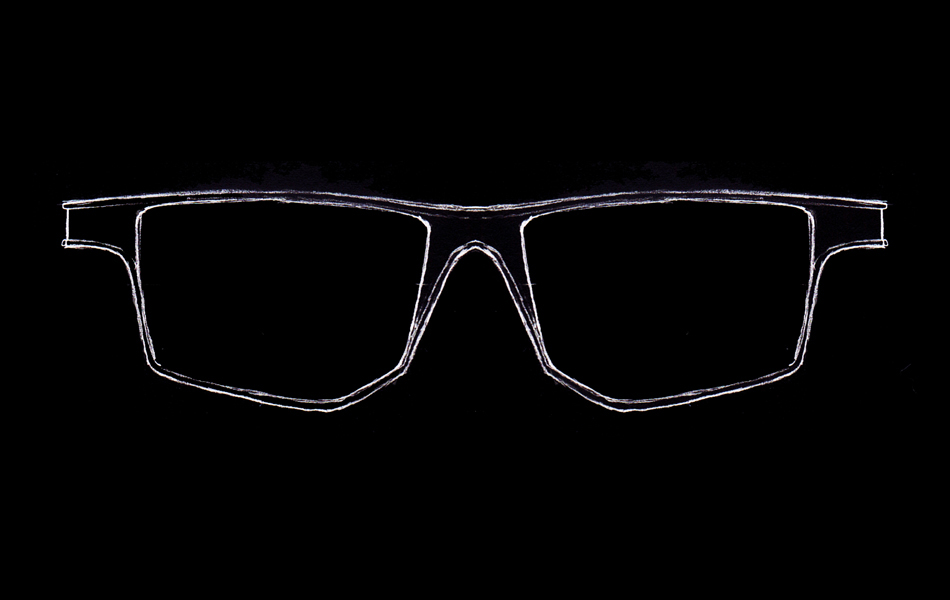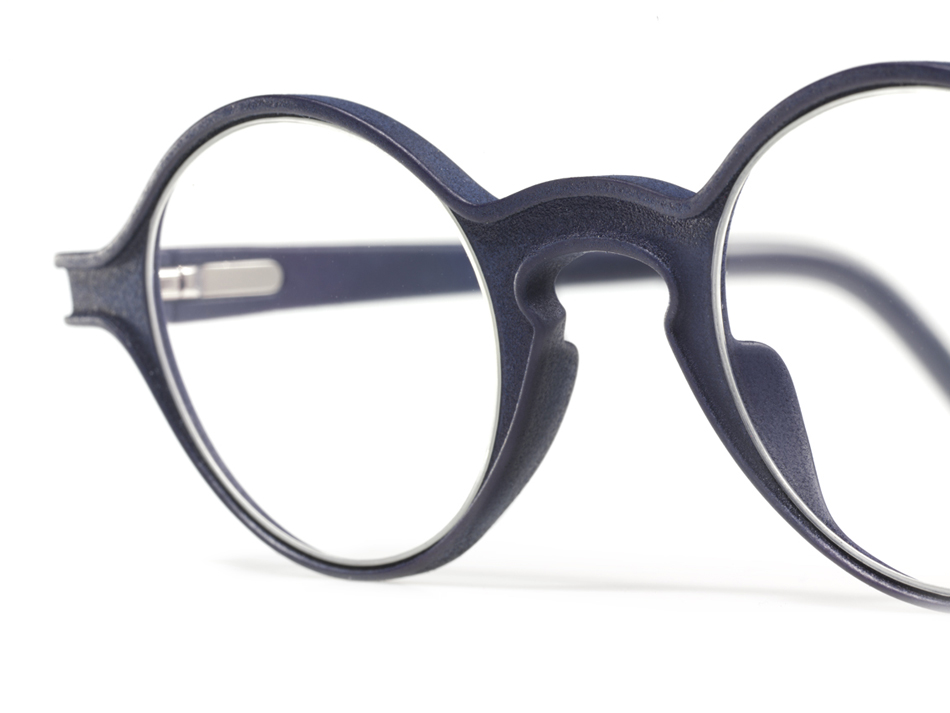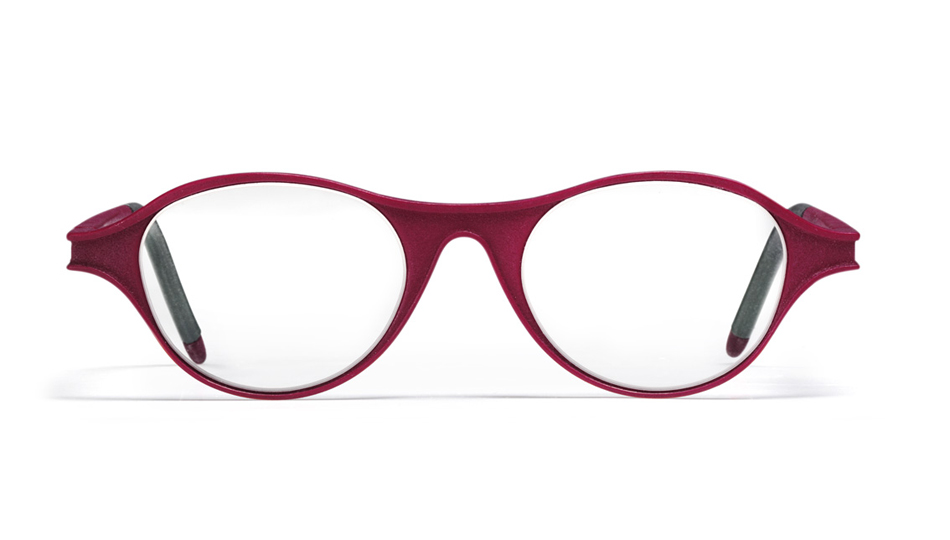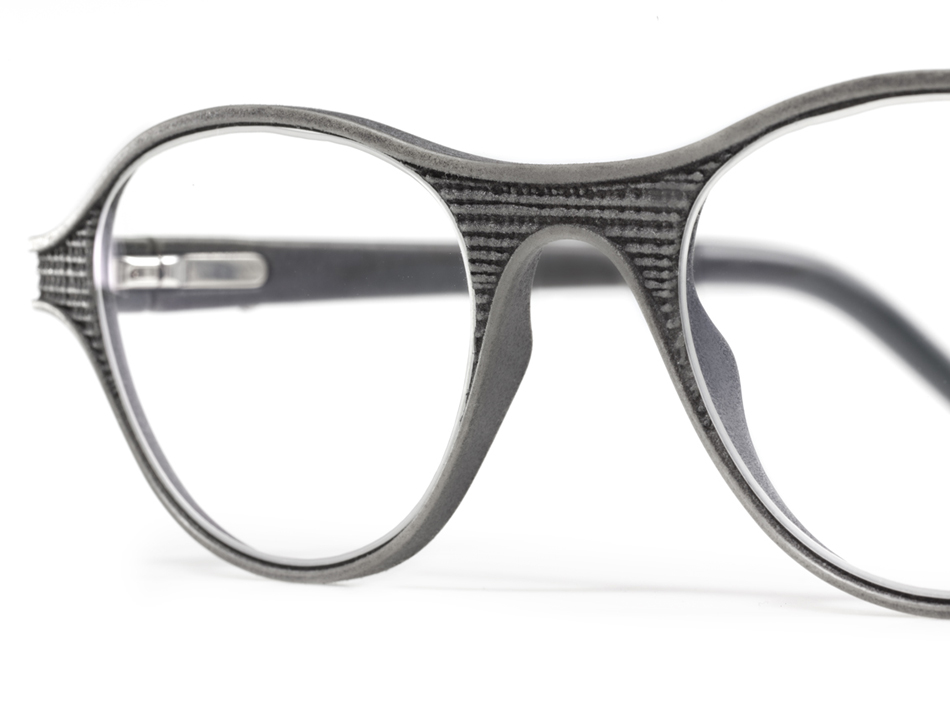Hoya - Yuniku
PRACTICAL
In store, the customer’s facial features are scanned and their visual needs are recorded. Based on the collected data, the optimal wearing parameters are defined and fixed and an automatic sizing recommendation for the frame is made. This ensures not only optimal vision but also the most comfortable frame fit, because each frame can be customised to suit every unique face.
Frame design, colour and finish can all be chosen to match the customer’s individual style. A virtual image of what the customer will look like in the selected eyewear is displayed on the screen, ensuring complete satisfaction with the end result.
The collection consists of 12 basic models in nine colours with the recognisable HOET design touch and a unique conceptual design.
The personal file of the customer enables to position the lenses perfectly in relation to the customer’s face. This results in the best possible performance of lenses and visual comfort.
Based on the data obtained, the optician who uses the software advises on the most suitable and advanced lenses from the HOYA selection.
The lenses and eyeglasses are inseparable.
In store, the customer’s facial features are scanned and their visual needs are recorded. Based on the collected data, the optimal wearing parameters are defined and fixed and an automatic sizing recommendation for the frame is made. This ensures not only optimal vision but also the most comfortable frame fit, because each frame can be customised to suit every unique face.
Frame design, colour and finish can all be chosen to match the customer’s individual style. A virtual image of what the customer will look like in the selected eyewear is displayed on the screen, ensuring complete satisfaction with the end result.
The collection consists of 12 basic models in nine colours with the recognisable HOET design touch and a unique conceptual design.
The personal file of the customer enables to position the lenses perfectly in relation to the customer’s face. This results in the best possible performance of lenses and visual comfort.
Based on the data obtained, the optician who uses the software advises on the most suitable and advanced lenses from the HOYA selection.
The lenses and eyeglasses are inseparable.


TECHNOLOGY
This concept would not have been possible if not for the intervention of 3D-print technology: A technology that has no competitor and has been inspiring Hoet for a long time. In 2013, Hoet became the first and only one on the market to sell tailor-made 3D-printed eyewear.
After a thorough study of facial anatomy in which 1,000 head scans were examined — and with the necessary experience in design, retail and wholesale — Hoet took the designing of the eyeglasses upon itself, taking into account the parameters for scaling and the maximum and minimum values. Hoet also advised about the presentation of the eyewear and the workflow within the software, contributing tremendously to the brand identity of Yuniku.
To design unique eyewear, one requires thorough knowledge of materials and technology. A unique eyewear concept is born by taking optimal advantage of both material and technology and by turning its disadvantages into an advantage.
Based on Hoet’s experience and expertise of these issues, the first Yuniku eyewear was designed for HOYA.
This concept would not have been possible if not for the intervention of 3D-print technology: A technology that has no competitor and has been inspiring Hoet for a long time. In 2013, Hoet became the first and only one on the market to sell tailor-made 3D-printed eyewear.
After a thorough study of facial anatomy in which 1,000 head scans were examined — and with the necessary experience in design, retail and wholesale — Hoet took the designing of the eyeglasses upon itself, taking into account the parameters for scaling and the maximum and minimum values. Hoet also advised about the presentation of the eyewear and the workflow within the software, contributing tremendously to the brand identity of Yuniku.
To design unique eyewear, one requires thorough knowledge of materials and technology. A unique eyewear concept is born by taking optimal advantage of both material and technology and by turning its disadvantages into an advantage.
Based on Hoet’s experience and expertise of these issues, the first Yuniku eyewear was designed for HOYA.
PRODUCT INNOVATION
The flexible and tough characteristics of polyamide / nylon were used to obtain the thinnest form possible for this product. The upright edge for keeping the lenses in place is printed into the eyeglasses. That way, the eyeglasses were actually built around the lenses and materials were added to reinforce the stability of the eyewear.
It is also the first 3D-printed eyewear with Nylor assembly and appeared to be the most suitable solution for this completely new concept.
Weighing only 14 grams, this 3D-printed eyewear is one of the lightest of its kind.
An ingenious system for adjusting the temples was further elaborated and integrated into the eyeglasses.
The flexible and tough characteristics of polyamide / nylon were used to obtain the thinnest form possible for this product. The upright edge for keeping the lenses in place is printed into the eyeglasses. That way, the eyeglasses were actually built around the lenses and materials were added to reinforce the stability of the eyewear.
It is also the first 3D-printed eyewear with Nylor assembly and appeared to be the most suitable solution for this completely new concept.
Weighing only 14 grams, this 3D-printed eyewear is one of the lightest of its kind.
An ingenious system for adjusting the temples was further elaborated and integrated into the eyeglasses.


After research, specific input and experience from three parties (Hoet, Hoya and Materialise), a unique business model is reached with an eye on the future:
And as with Hoet Couture, a 3D printed collection in titanium, the production of the Yuniku eyewear will also start only after the initial sales. This will drastically reduce the investment in stock.
With a long tradition in optics, Hoet’s motivation is to contribute to a better world with regard to the distributor, optician and consumer.
tailored-made eyewear and lenses offered in a single package.
The Yuniku concept is fully integrated, ensuring seamless customisation, production and delivery. Customers are involved throughout, offering maximum opportunity to interact and create their own unique eyewear.And as with Hoet Couture, a 3D printed collection in titanium, the production of the Yuniku eyewear will also start only after the initial sales. This will drastically reduce the investment in stock.
With a long tradition in optics, Hoet’s motivation is to contribute to a better world with regard to the distributor, optician and consumer.